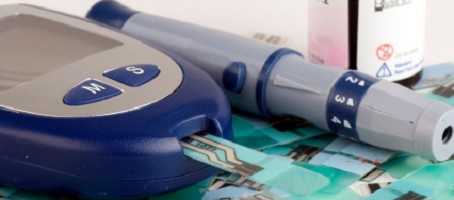The psoriasis drug alefacept has met a number of targets in a phase 2 trial to discover whether it can prolong and improve insulin production in newly diagnosed patients with type 1 diabetes.
The study is a phase 2 study and used tested 49 eligible patients with type 1 diabetes, newly diagnosed within 100 days of the start of the study. 33 of participants took alefacept and 16 took a placebo.
Patients were monitored over 12 months. At the end of the year, successes of the drug treatment included:
Improvement in insulin production at the 4 hour after eating mark
Lower insulin doses required
Reduction in hypos
Results show that, 4 hours after eating, C-peptide levels increased (by 0.015 nmol/L) for those in the alefacept group whilst C-peptide levels fell (by 0.156 nmol/L) for those in placebo group. C-peptide is a measure of how much insulin is being produced by the pancreas. The increase in C-peptide levels for the alefacept group shows that patients in this group were able to produce slightly more of their own insulin as a result of the treatment.
Similar results were noted for 2 hour C-peptide levels, however, the difference between groups was not large enough to meet the study targets. This measure was set as the primary target to be achieved.
Other results showed that patients in the alefacept group were able to 25% less insulin (worked out as units of insulin per kg of weight of participants). The number of hypoglycemic events also reduced for those receiving the treatment. Participants on alefacept recorded 10.9 hypos per year compared with 17.3 amongst the placebo group.
The research team noted that each participant in the alefacept group experienced an adverse event as a result of the treatment, however, none of these were serious. By comparison, 56% of the placebo group experienced an adverse event.
The study, which was carried out in the United States was funded by the JDRF, the charity for people with type 1 diabetes. The study failed to meet its primary endpoint but did meet its secondary endpoint. The current study will be continuing over the next year and further results may influence whether the research will be followed by a larger scale clinical study or not.








